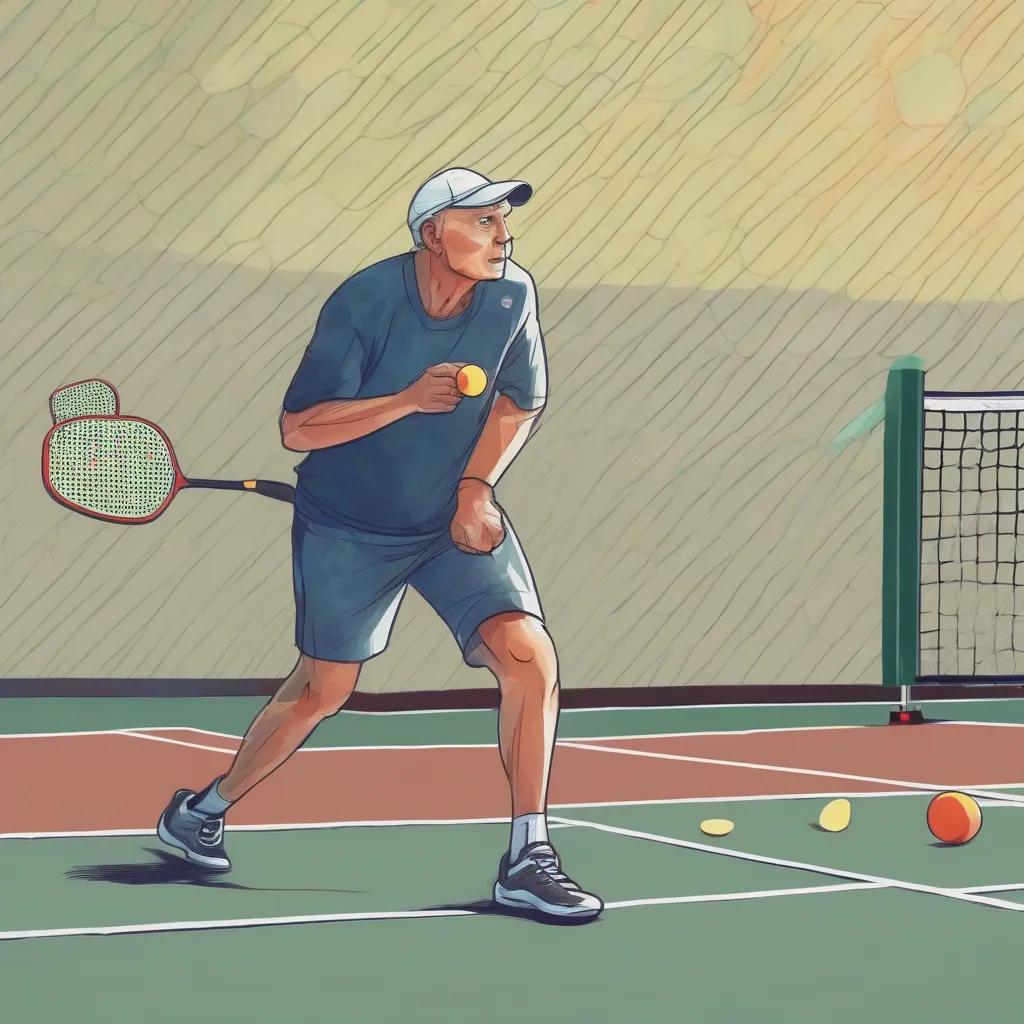Imagine this: you’re in the middle of a crucial pickleball match. The score is tied, the pressure is on, and your heart is pounding. Your opponent hits a tricky drop shot. Do you react impulsively, rushing the net and potentially making an error? Or do you take a breath, assess the situation, and respond strategically? This, my friend, is the power of implementing strategic mindfulness on the court.
What is Strategic Mindfulness on the Court?
Strategic mindfulness isn’t about emptying your mind and becoming a Zen master mid-game. It’s about cultivating a present-focused awareness that allows you to make smarter decisions under pressure. It’s about understanding your own internal state – your thoughts, emotions, and physical sensations – and using that awareness to your advantage. It’s the sweet spot where mental fortitude meets tactical prowess.
The Benefits of Mindfulness in Sports
Mindfulness has been shown to enhance athletic performance in numerous ways. Research suggests that it can improve focus, reduce anxiety, increase emotional regulation, and boost resilience. A study published in the Journal of Sport and Exercise Psychology found that mindful athletes exhibit greater self-awareness and are better equipped to manage stress during competition. This translates to improved decision-making, enhanced reaction time, and a greater ability to stay “in the zone.”
Improved Focus and Concentration
One of the key benefits of mindfulness is its ability to quiet the mental chatter that can distract us during competition. By focusing on the present moment, you can filter out distractions and maintain a laser-like focus on the task at hand. This is especially important in sports like pickleball, where split-second decisions can make all the difference.
Reduced Anxiety and Stress
Pressure is a natural part of competition. However, excessive anxiety can negatively impact performance. Mindfulness techniques, such as deep breathing and body scans, can help regulate the nervous system and reduce feelings of stress and anxiety. This allows you to perform at your best, even in high-pressure situations.
Enhanced Emotional Regulation
Emotions can run high during competition. Mindfulness can help you become more aware of your emotional state and develop strategies for managing those emotions effectively. This can prevent emotional outbursts that can derail your game.
Increased Resilience
Setbacks are inevitable in sports. Mindfulness can help you develop the mental toughness to bounce back from disappointments and stay motivated. It cultivates a growth mindset, allowing you to view challenges as opportunities for learning and improvement.
Practical Tips for Implementing Strategic Mindfulness on the Court
So, how can you actually incorporate mindfulness into your pickleball game? Here are a few practical tips:
Pre-Game Rituals
Develop a pre-game routine that incorporates mindfulness practices. This could include a few minutes of meditation, deep breathing exercises, or visualization techniques. This helps center your mind and prepare you mentally for the match.
Mindful Breathing During Breaks
During changeovers or timeouts, take a few deep breaths to calm your nerves and refocus your attention. Focus on the sensation of the breath entering and leaving your body.
Body Scan Awareness
Pay attention to your physical sensations during the game. Are your muscles tense? Is your grip too tight? By becoming aware of these physical cues, you can make adjustments and improve your performance.
Non-Judgmental Observation of Thoughts
Thoughts will inevitably arise during the game. Instead of getting caught up in them, simply observe them without judgment. Acknowledge the thought and then gently redirect your attention back to the present moment.
Focus on the Process, Not the Outcome
It’s easy to get fixated on the score or the outcome of the match. Instead, focus on the process. Focus on executing each shot to the best of your ability. This will help you stay present and perform at your peak.
Mindfulness Exercises for Pickleball Players
- Mindful Serving: Pay attention to the feel of the ball in your hand, the rhythm of your toss, and the smooth swing of your paddle.
- Mindful Returning: Observe the trajectory of the incoming ball, anticipate its bounce, and react with intention.
- Mindful Positioning: Be aware of your position on the court, your opponent’s position, and the overall flow of the game.
“Mindfulness is not about achieving a state of perfect calmness. It’s about developing the ability to be present with whatever is happening, whether it’s pleasant or unpleasant,” says renowned sports psychologist Dr. Michael Gervais. This ability to be present, particularly under pressure, is what separates good athletes from great ones.
 Mindful Pickleball Player
Mindful Pickleball Player
- Mumford, George (Author)
- English (Publication Language)
- Saltzman MD, Amy (Author)
- English (Publication Language)
- Horne, Troy (Author)
- English (Publication Language)
- Biegel MA LMFT, Gina M. (Author)
- English (Publication Language)
- Turner, LCSW, Lauren (Author)
- English (Publication Language)
- Kaufman, Keith A. (Author)
- English (Publication Language)
- Marr, Taylor (Author)
- English (Publication Language)
- Corbin, Gina M. Biegel and Todd H. (Author)
- English (Publication Language)
- Henriksen, Kristoffer (Author)
- English (Publication Language)
- Ramsay, Jamel (Author)
- English (Publication Language)
Integrating Mindfulness into Your Training
Just like any skill, mindfulness takes practice. Start by incorporating short mindfulness exercises into your daily routine. Gradually increase the duration as you become more comfortable. You can find guided meditations and mindfulness apps designed specifically for athletes.
Reaping the Rewards of a Mindful Game
By implementing strategic mindfulness, you can transform your pickleball game and unlock your full potential. You’ll become more focused, resilient, and emotionally balanced. You’ll make smarter decisions under pressure and perform at your best, even in the most challenging situations. So, embrace the power of mindfulness and take your game to the next level!
Conclusion
Implementing strategic mindfulness on the court is a game-changer. It’s about more than just improving your pickleball skills; it’s about cultivating a mental state that allows you to thrive under pressure. By incorporating mindfulness practices into your training and gameplay, you can enhance your focus, manage your emotions, and boost your overall performance. Remember, it’s not about emptying your mind, but rather training it to be your greatest asset. What are your thoughts on incorporating mindfulness into your pickleball game? Share your experiences and insights in the comments below! And don’t forget to explore our other articles on improving your pickleball strategy and technique for more valuable tips. Check out this article on smart pickleball play: (https://epickleball.org/how-to-play-smart-pickleball/). Let’s create a mindful and powerful pickleball community together!









